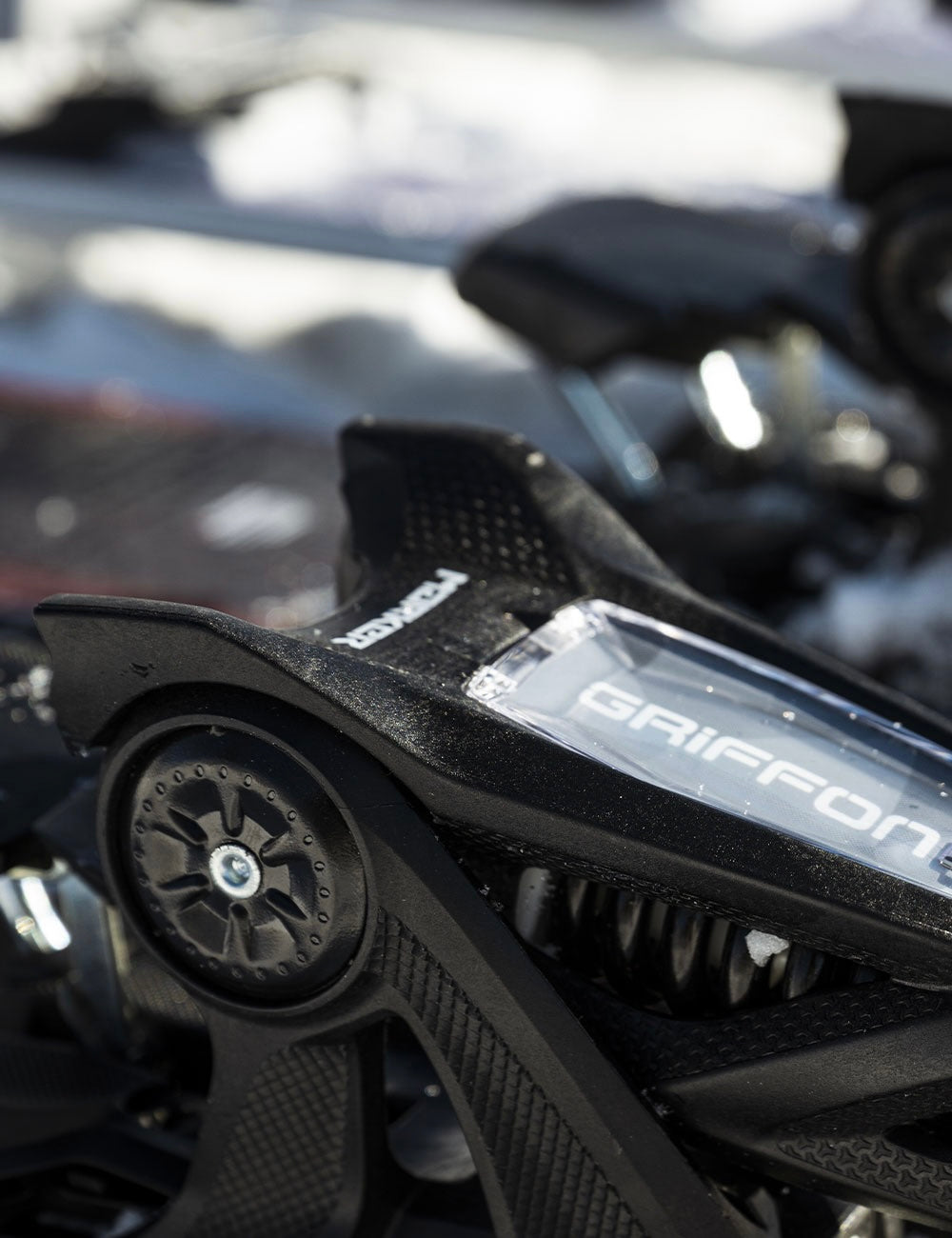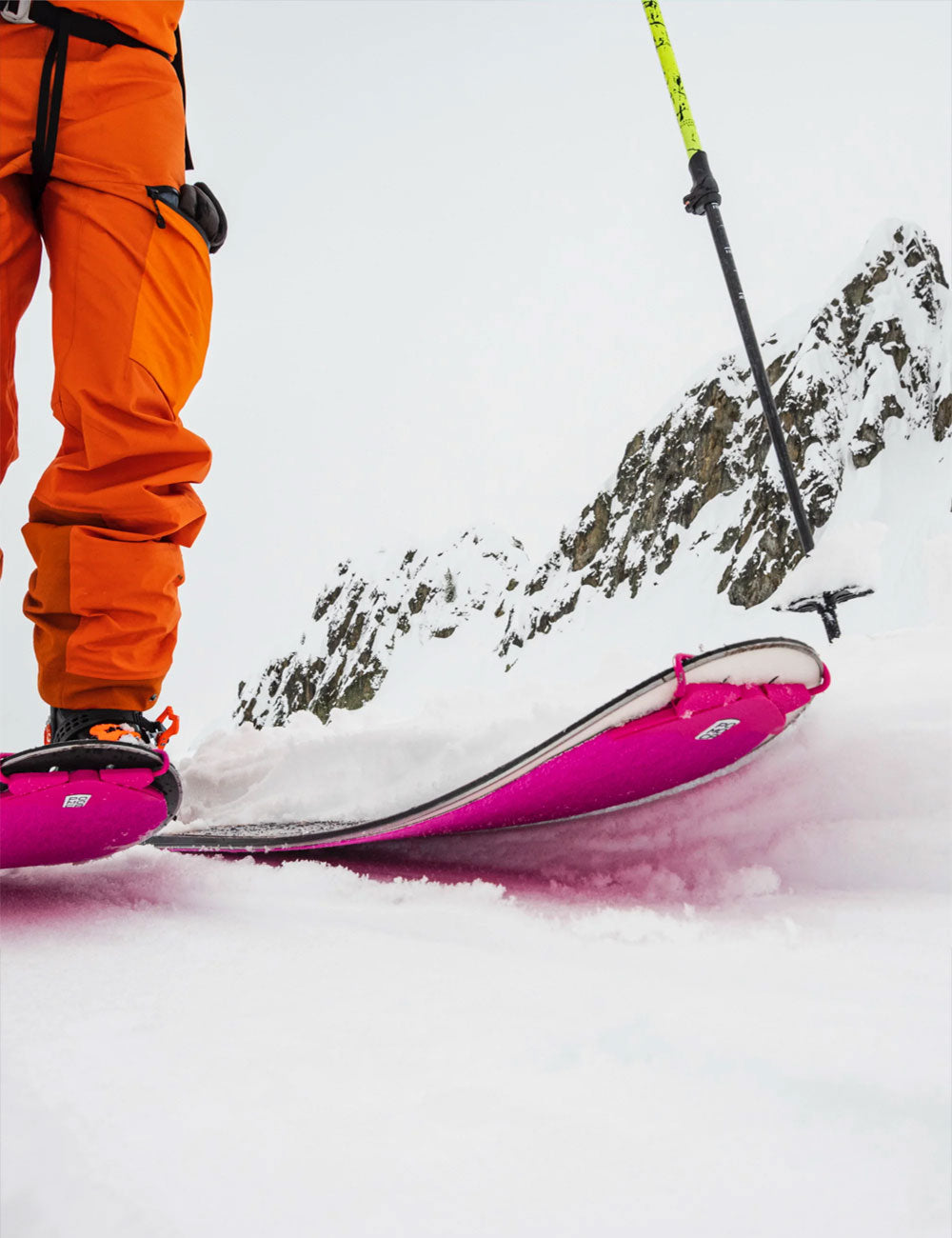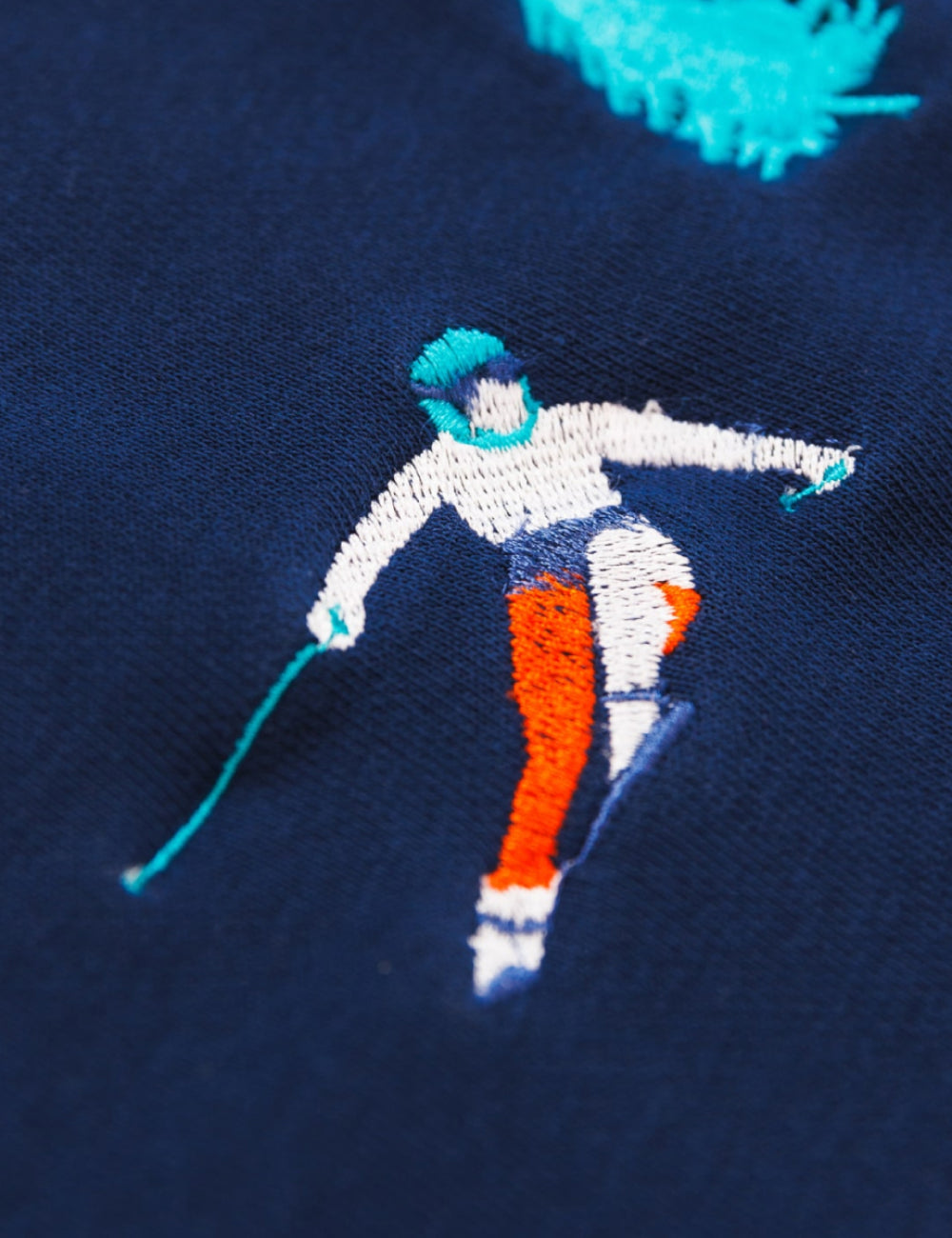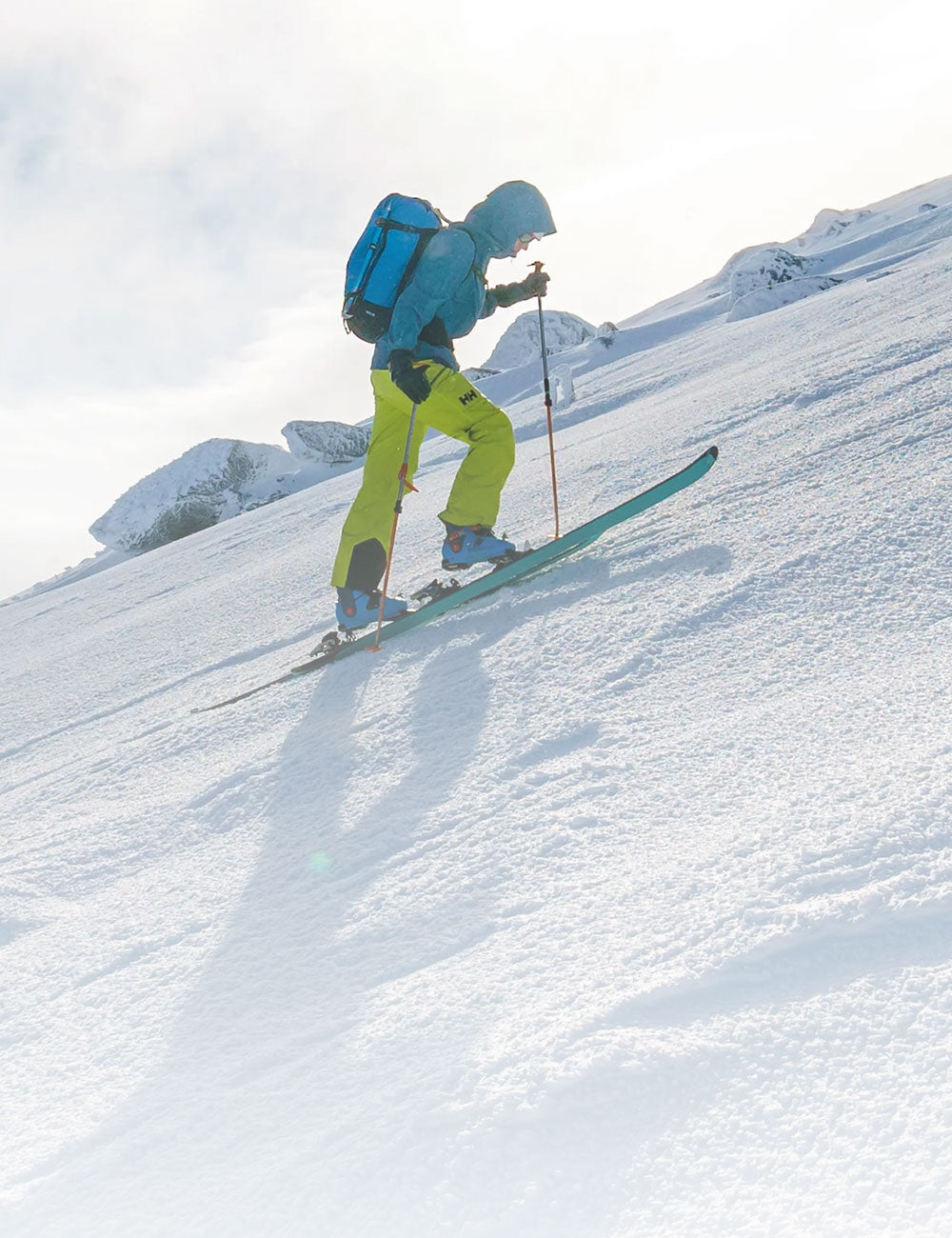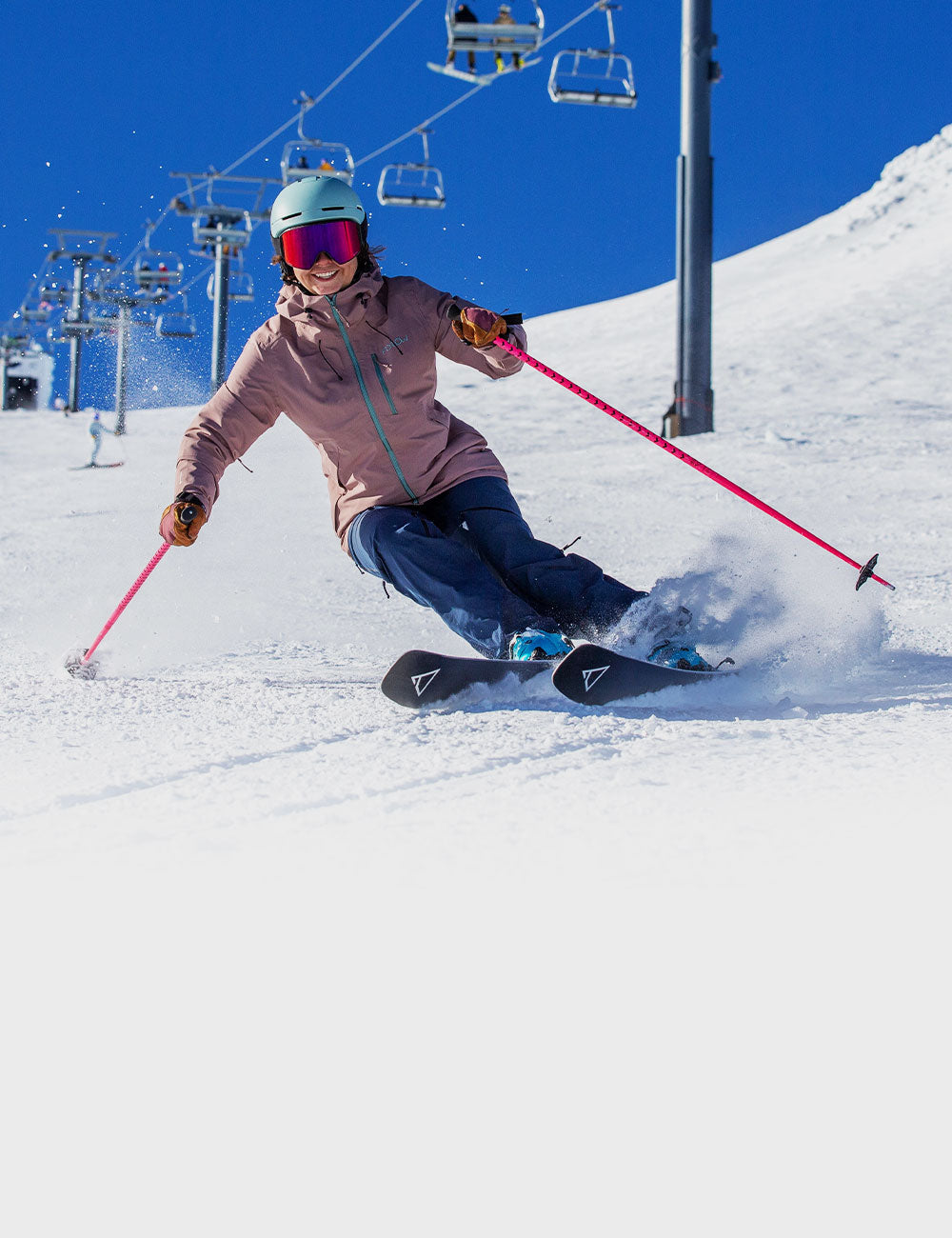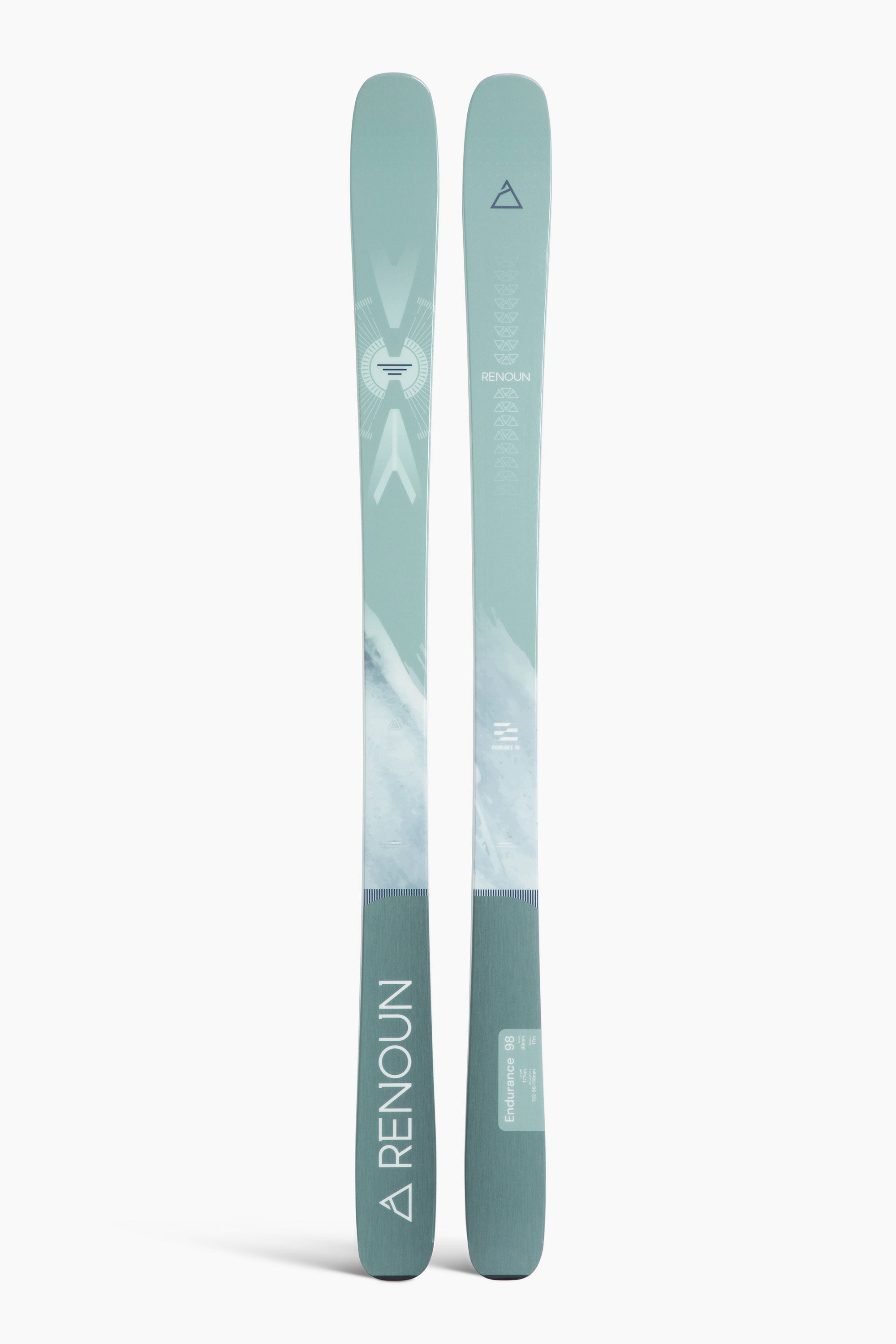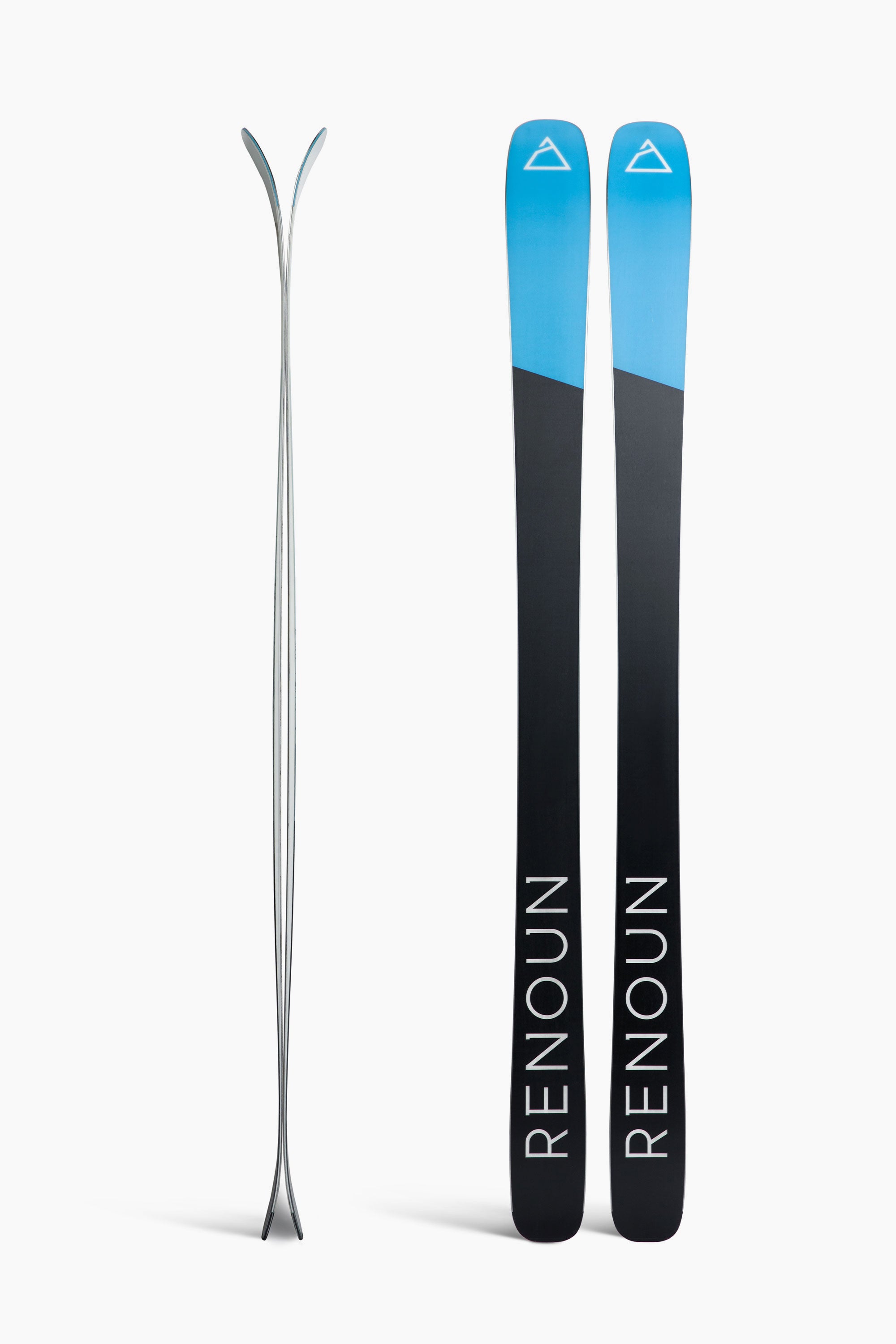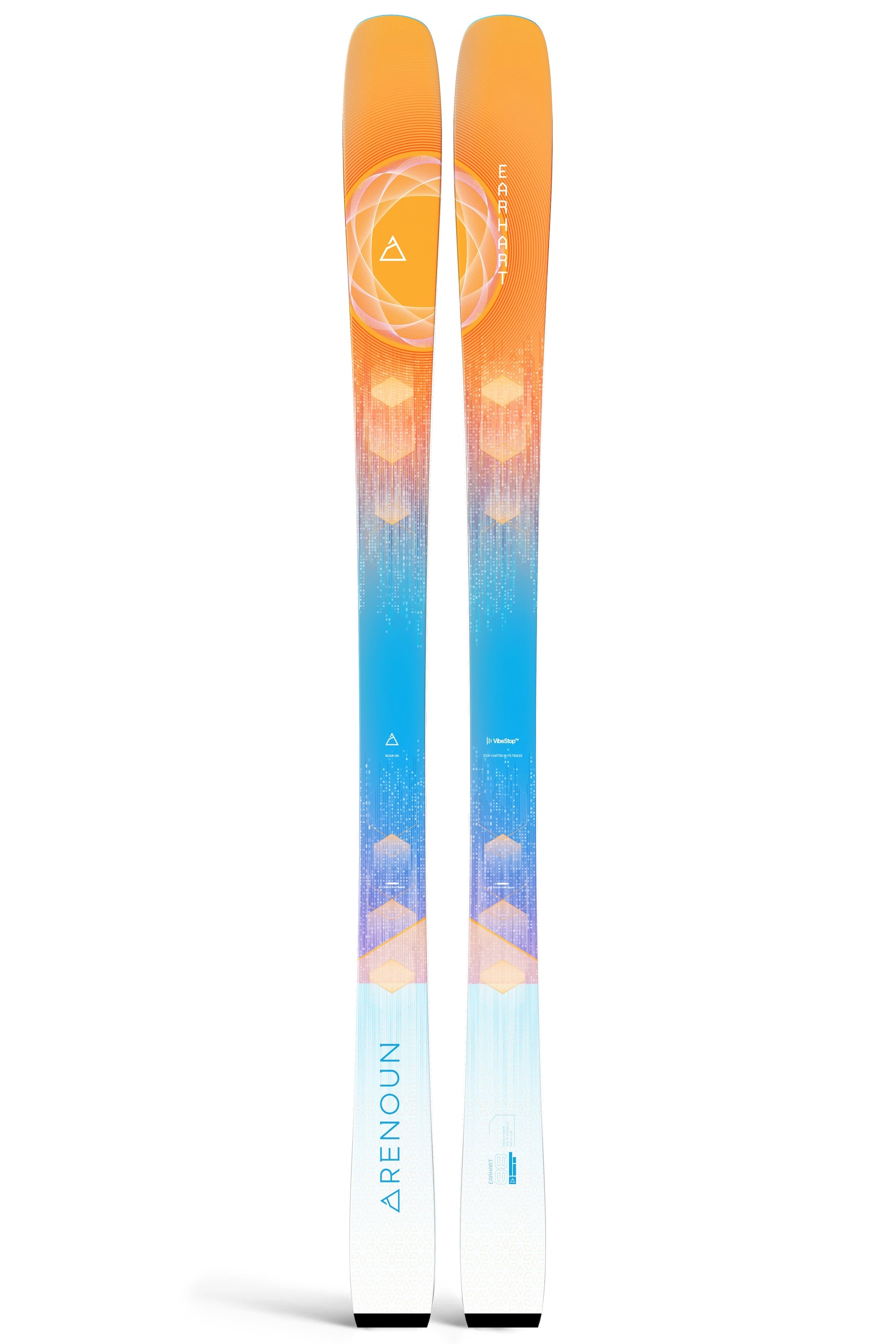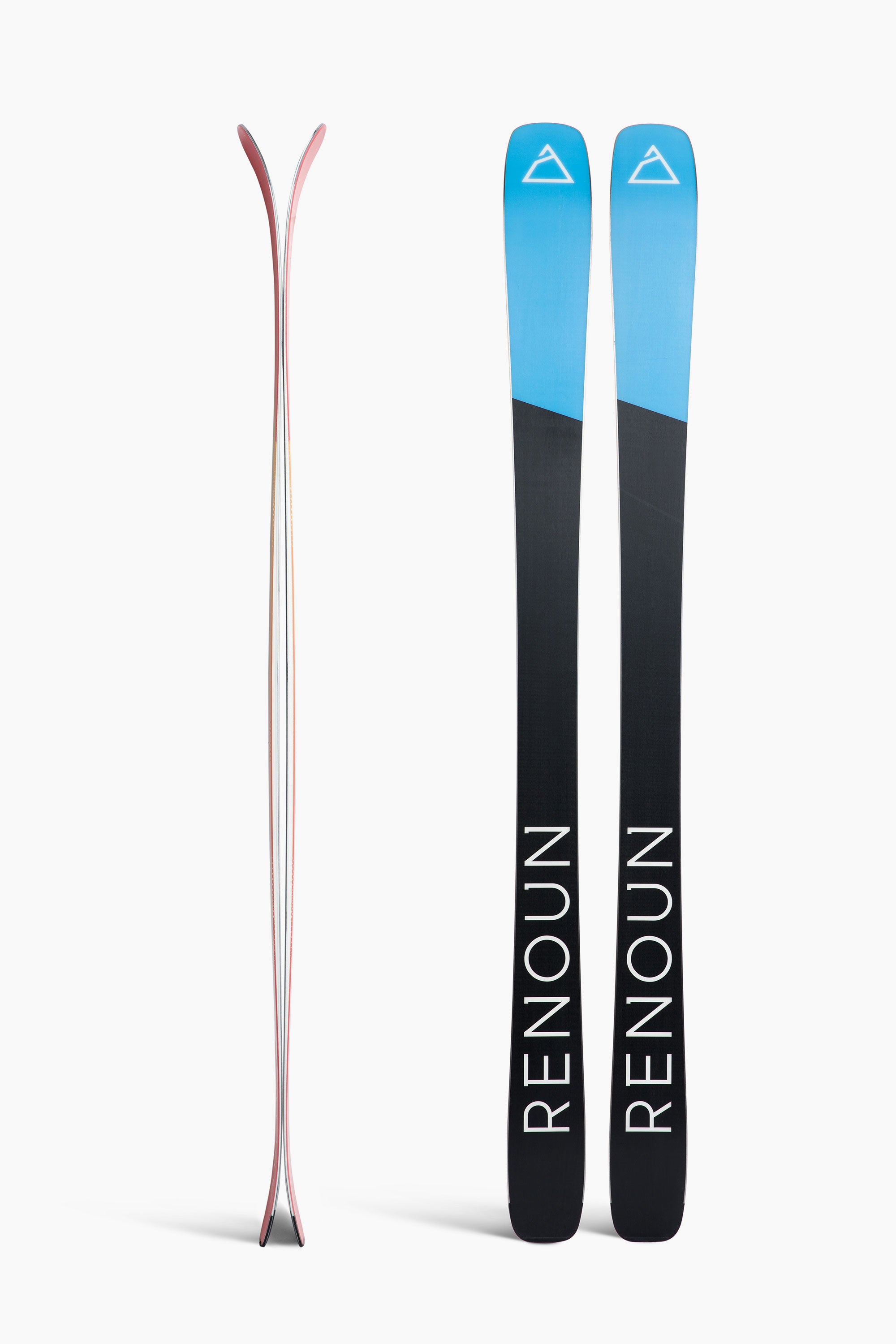Renoun All-Mountain Skis
All-mountain skis represent the multitool of ski design—your reliable daily driver that performs from first chair to last, tackling everything you throw at it. Renoun's all-mountain skis have your back anywhere on the mountain: groomed runs, bumps, variable snow conditions, light powder, and everything in between. They’re the perfect choice for skiers who want one ski that handles 90% of resort terrain with confidence and control.
See our comparison chart to compare our all-mountain skis.
See our comparison chart to compare our all-mountain skis.
3 products
All-Mountain
All-Mountain
Women's All-Mountain
Need Help Deciding?
All-mountain skis should suit the terrain you actually ski, not aspirational skiing or that once in a lifetime trip. Consider where you spend most of your time on the mountain: primarily groomers with occasional powder, or regularly exploring beyond marked runs into glades and sidecountry? Your ability level also matters—advanced skiers can handle wider, more specialized designs, while intermediate skiers benefit from easier-to-turn, groomer-focused options.
Honest self-assessment matters: Research shows 80% of skiers spend 80% of their time on groomed terrain, yet many purchase skis too wide for their actual usage patterns. If you rarely venture off-piste, an 88mm ski will outperform a 100mm ski in your day to day skiing.
You can also try our ski finder to find the perfect ski for you, or explore our carving skis for groomer specialists, powder skis for deep snow focus, or touring skis if backcountry access matters.
Honest self-assessment matters: Research shows 80% of skiers spend 80% of their time on groomed terrain, yet many purchase skis too wide for their actual usage patterns. If you rarely venture off-piste, an 88mm ski will outperform a 100mm ski in your day to day skiing.
You can also try our ski finder to find the perfect ski for you, or explore our carving skis for groomer specialists, powder skis for deep snow focus, or touring skis if backcountry access matters.
Width
88mm underfoot
98mm underfoot
88mm underfoot
Specialty
On-trail optimized. Better if you spend about 70% of your time trails and groomed terrain.
Off-trail optimized. Best suited if you spend 50% of your time exploring beyond the groomers.
On-trail optimized. Designed for those who spend about 70% on trails and groomed terrain.
Ideal Terrain
All-Mountain/On-Piste
All Mountain/Off-Piste
All Mountain/On-Piste
Designed For
All-Gender
All-Gender
Women/Lighter Skiers
Less chatter. Better grip.
Learn about VibeStop™What Makes a Great All-Mountain Ski?
All-mountain skis are what you reach for when you expect to ski a little bit of everything, from groomers, crud, and even a few inches of fresh snow. The best all-mountain skis are versatile and intuitive, capable of tackling a wide range of terrain and conditions.
Geometry & Performance
Advanced skiers prioritize stability at speed and edge hold—the hallmarks of quality all-mountain design. Sidecut radii typically range from 15-20m for balanced turning performance, while camber profiles feature traditional camber with subtle tip and tail rocker for versatility. Medium to medium-stiff flex patterns provide the stability and responsiveness that experienced skiers demand.Construction Quality
Premium construction separates exceptional skis from adequate ones. Wood cores remain the gold standard for energy storage and vibration damping, while composite reinforcement (fiberglass, carbon fiber, or metal) adds stiffness and stability. Now technologies like Renoun's VibeStop™ eliminate chatter and enhance control in variable conditions.Waist Width
- 85-90mm (Endurance 88 & Earhart 88): On-trail optimized for skiers spending 70% of time on groomed trails
- 95-105mm (Endurance 98): Off-trail capable for 50% beyond-groomer exploration
Frequently Asked Questions (FAQ)
1. What size (length) should I choose for all-mountain skis?
The ideal ski length depends on your height, weight, ability, and preferred terrain. Many skiers choose a length between chin and nose height as a baseline, then adjust slightly based on performance goals. For more details, see our guide to choosing the right ski length.
2. What is the ideal waist width for all-mountain skis?
It depends on where you ski most. Narrower waists (85–95 mm) excel on groomers and hardpack; wider waists (95–105 mm) offer more float in soft snow and variable terrain. Learn more in our ski width guide.
3. Can all-mountain skis handle powder, hardpack, and ice?
Yes — that’s the goal of an “all-mountain” ski. They try to balance edge grip for firm snow with enough float and rocker to manage softer and variable snow conditions. This results in a ski that can often handle some icy conditions, but may not grip as well as a freshly tuned race ski. VibeStop™ helps change this by absorbing chatter and increasing the amount of time the edge of the ski stays in contact with the snow. Read our blog about the benefits of VibeStop™ in icy conditions.
4. Are all-mountain skis good for beginners or intermediate skiers?
All-mountain skis can be a solid choice for intermediate riders who want versatility. For beginners, you may prefer a more forgiving flex or slightly narrower ski until skill improves. To get a personalized recommendation, try our Ski Finder tool.
5. How do all-mountain skis differ from powder, carving, or freeride skis?
All-mountain skis are a compromise: they aren’t as specialized as powder or carving skis, but they try to perform decently across conditions. Powder skis are wider and float better; carving skis are narrower and stiffer; freeride skis often lean heavier and more aggressive off-piste.
6. How stiff (what flex) should I choose in an all-mountain ski?
Flex choice depends on your weight, style, and speed. Heavier or aggressive skiers often prefer stiffer skis; lighter or more playful skiers may opt for more forgiving flex. See our full ski stiffness & flex guide for detailed advice.
7. Should I demo all-mountain skis before buying, and how should I test them?
Yes. Demoing allows you to feel how the ski handles real terrain. Test in varied snow (groomers, soft, icy) and evaluate responsiveness, stability, and turn initiation before buying. At Renoun, we make this easy with our TryOnSnow™ Guarantee, which lets you try skis on the snow before committing.


